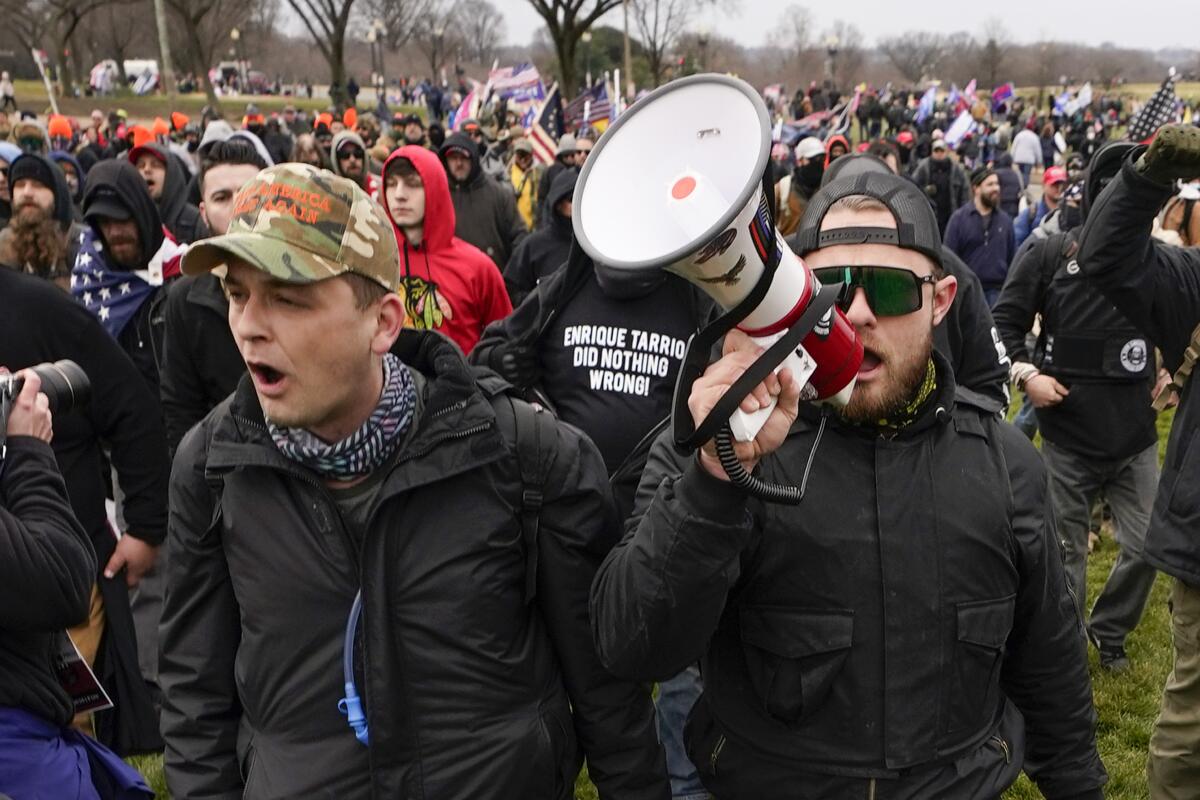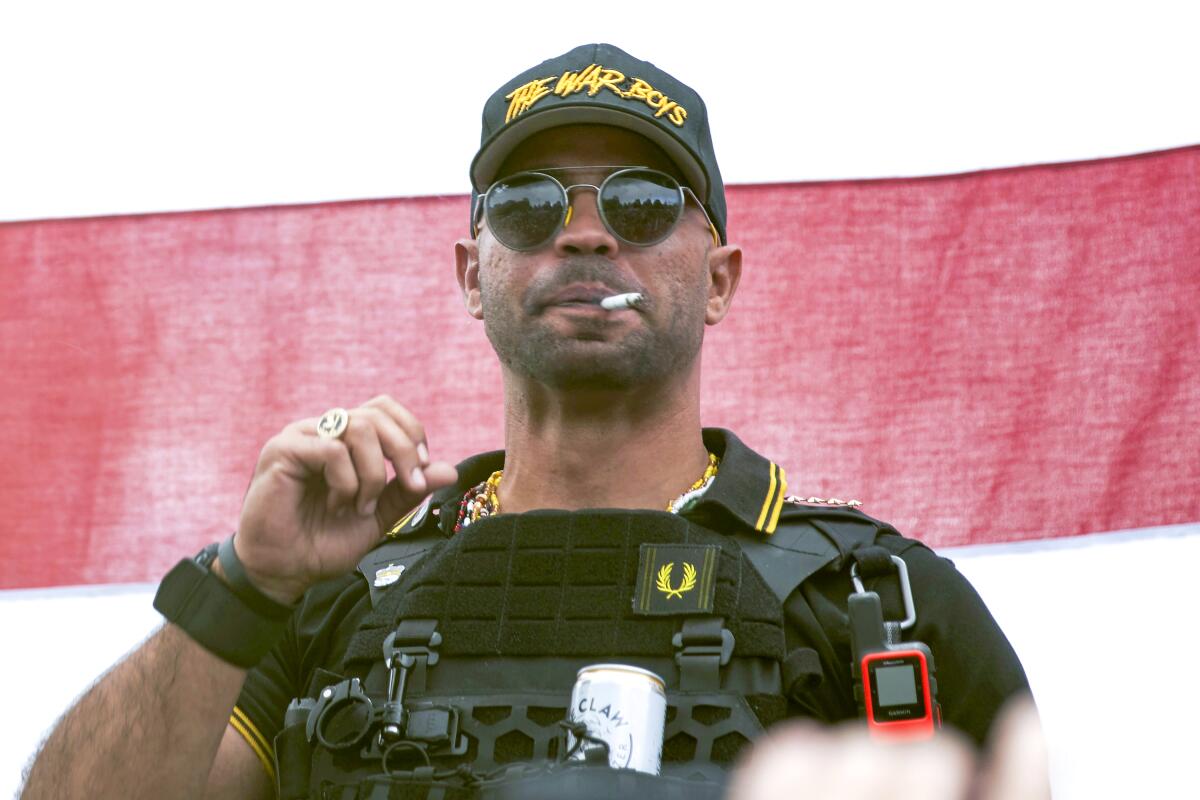5 members of the Proud Boys charged with seditious conspiracy in Capitol riot

- Share via
The former top leader of the far-right Proud Boys extremist group and other members have been charged with seditious conspiracy for what federal prosecutors say was a coordinated attack on the U.S. Capitol to stop Congress from certifying President Biden’s 2020 electoral victory, authorities said Monday.
Henry “Enrique” Tarrio, the former Proud Boys chairman, and four others linked to the group are charged in the latest indictment against them. All five were previously charged with different conspiracy counts.
Tarrio, the group’s top leader, wasn’t in Washington, D.C., when the riot erupted on Jan. 6, 2021. Police arrested Tarrio in Washington two days before the riot and charged him with vandalizing a Black Lives Matter banner at a historic Black church during a protest in December 2020. Tarrio was released from jail on Jan. 14 after serving his five-month sentence for that case.
The new riot-related indictments against Proud Boys members are among the most serious filed so far, but they aren’t the first of their kind.
Eleven members or associates of the anti-government Oath Keepers militia group, including its founder and leader Stewart Rhodes, were indicted in January on seditious conspiracy charges in the Capitol attack.
More than three dozen people charged in the Capitol siege have been identified by federal authorities as Proud Boys leaders, members or associates.

Former Proud Boys Chairman Henry ‘Enrique’ Tarrio was not at the Capitol on Jan. 6, 2021, but has been arrested for his alleged role in the attack.
A New York man pleaded guilty in December to storming the U.S. Capitol with fellow Proud Boys members. Matthew Greene was the first Proud Boys member to publicly plead guilty to conspiring with other members to stop Congress from certifying the electoral college vote. Greene agreed to cooperate with authorities.
On the morning of Jan. 6, Proud Boys members met at the Washington Monument and marched to the Capitol before then-President Trump finished speaking to thousands of supporters near the White House.
Just before Congress convened a joint session to certify the election results, a group of Proud Boys followed a crowd of people who breached barriers at a pedestrian entrance to the Capitol grounds, an indictment says. Several Proud Boys also entered the Capitol building itself after the mob smashed windows and forced open doors.
Prosecutors have said the Proud Boys arranged for members to communicate using specific frequencies on Baofeng radios. The Chinese-made devices can be programmed for use on hundreds of frequencies, making it difficult for outsiders to eavesdrop.
In December, a federal judge refused to dismiss an earlier indictment charging four alleged leaders of the far-right Proud Boys with conspiracy. U.S. District Judge Timothy Kelly rejected defense attorneys’ arguments that the four men — Ethan Nordean, Joseph Biggs, Zachary Rehl and Charles Donohoe — were charged with conduct that is protected by the 1st Amendment right to free speech.
Breaking News
Get breaking news, investigations, analysis and more signature journalism from the Los Angeles Times in your inbox.
You may occasionally receive promotional content from the Los Angeles Times.
Nordean, of Auburn, Wash., was a Proud Boys chapter president and a member of the group’s national “Elders Council.” Biggs, of Ormond Beach, Fla., is a self-described Proud Boys organizer. Rehl was president of the Proud Boys chapter in Philadelphia. Donohoe, of Kernersville, N.C., also served as president of his local chapter, according to the indictment.
Proud Boys members describe the group as a politically incorrect men’s club for “Western chauvinists.” Its members frequently have brawled with antifascist activists at rallies and protests. Vice Media co-founder Gavin McInnes, who founded the Proud Boys in 2016, sued the Southern Poverty Law Center for labeling it as a hate group.
More to Read
Sign up for Essential California
The most important California stories and recommendations in your inbox every morning.
You may occasionally receive promotional content from the Los Angeles Times.










